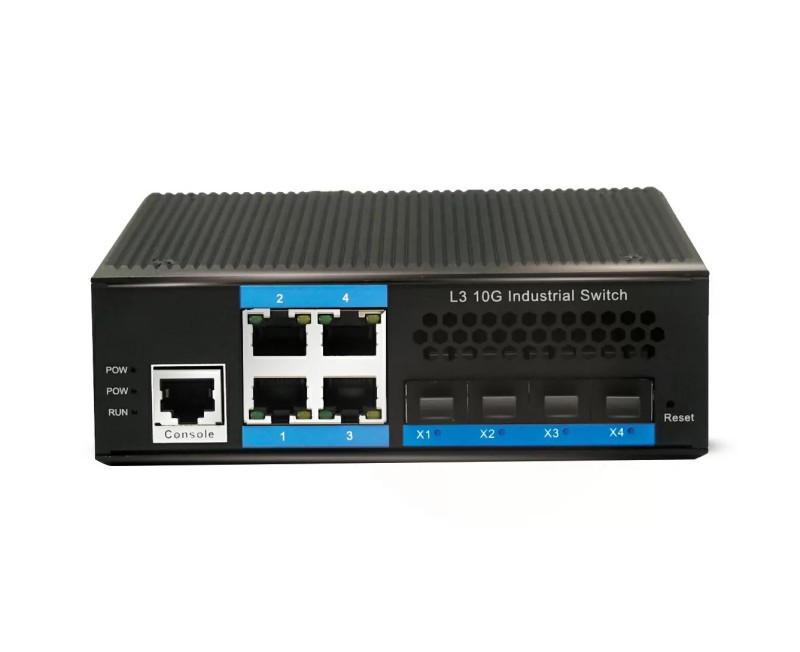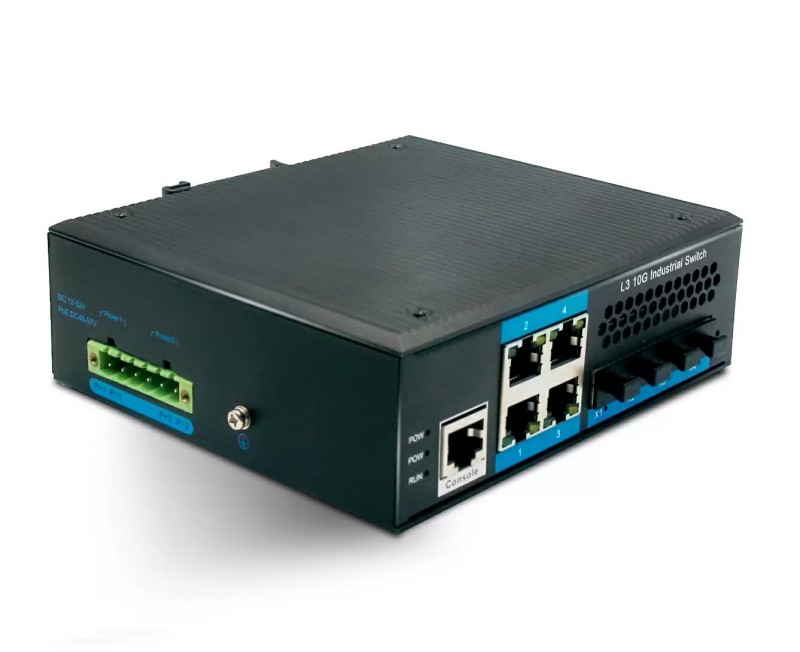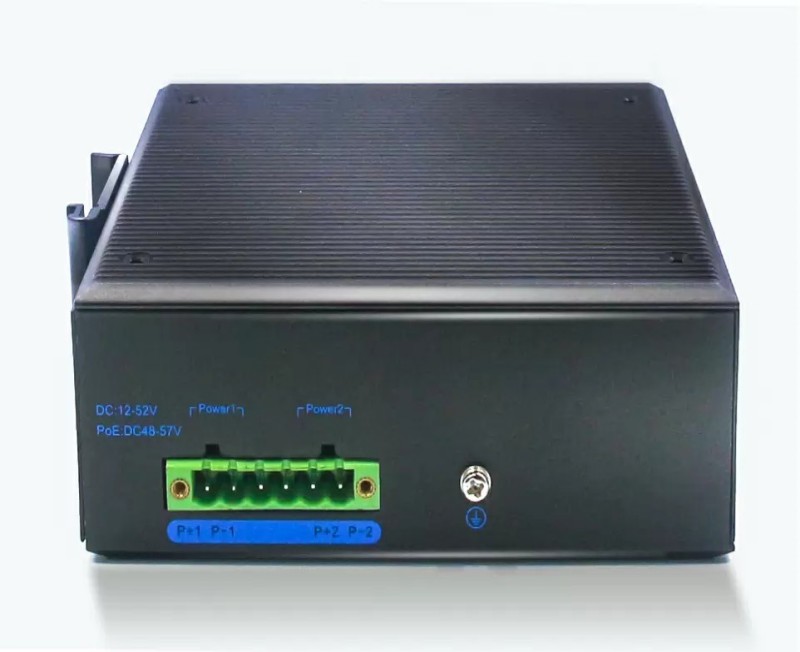.

As smart manufacturing continues to evolve, the demand for faster, smarter, and more reliable network infrastructure grows. One component at the center of this transformation is the L3 managed industrial switch. But what makes it such a popular choice for industrial networks?
✅ What Is an L3 Managed Industrial Switch?
An L3 managed industrial switch (Layer 3 switch) combines switching and basic routing capabilities, allowing it to forward data between different IP subnets. Unlike Layer 2 switches, which only handle MAC addresses, Layer 3 switches support IP-based routing, VLAN segmentation, static routes, and even OSPF in advanced models. In industrial environments, this means more control, more segmentation, and better performance—all within a rugged device built to withstand harsh conditions.

✅ Why Smart Manufacturing Needs Layer 3 Switching
Smart factories rely on a complex mix of IoT sensors, automation equipment, SCADA systems, and real-time data flow. A traditional Layer 2 network can quickly become overwhelmed with broadcast traffic, inefficient routing, and poor segmentation.
With an industrial L3 managed switch, manufacturers can:
Route traffic efficiently across departments or production zones
Reduce network congestion through intelligent VLANs
Prioritize time-sensitive data using Quality of Service (QoS)
Improve security with access control and traffic isolation
The result? A smarter, faster, and more scalable network.

✅ Key Features That Matter in Industrial Use
When selecting an L3 managed switch for industrial use, you’re not just looking at specs—you’re investing in long-term stability. Here's what sets an industrial layer 3 switch apart:
Rugged Design: Wide temperature tolerance, fanless cooling, and durable metal housings
Power Redundancy: Dual power inputs ensure uptime in mission-critical systems
DIN Rail Mounting: Easy installation in factory cabinets and control rooms
Advanced Protocol Support: IGMP, RSTP, ERPS, and static routing
Centralized Management: SNMP, CLI, and web-based interfaces for easy control
These features are essential for environments such as oil & gas plants, automated assembly lines, transport control centers, and renewable energy facilities.

✅ Use Cases: Where Industrial L3 Switches Make an Impact
Smart Factories: Interconnect PLCs, robots, and sensors across segmented VLANs
Video Surveillance: Separate camera networks from operation control systems
Energy Sector: Manage traffic in substations, wind farms, or solar power plants
Transportation: Control data across rail networks or intelligent traffic systems
With an industrial L3 managed switch, each part of the system operates independently—but communicates efficiently.
✅ Is It the Right Choice for You?
If your manufacturing operation demands high uptime, strong network segmentation, and fast data routing, then yes—an L3 managed industrial switch is likely the best fit. It supports the backbone of smart industry: scalability, control, and resilience.
Whether you're upgrading your factory network or designing a new smart facility from the ground up, consider investing in an industrial l3 managed switch to ensure future-ready performance.


